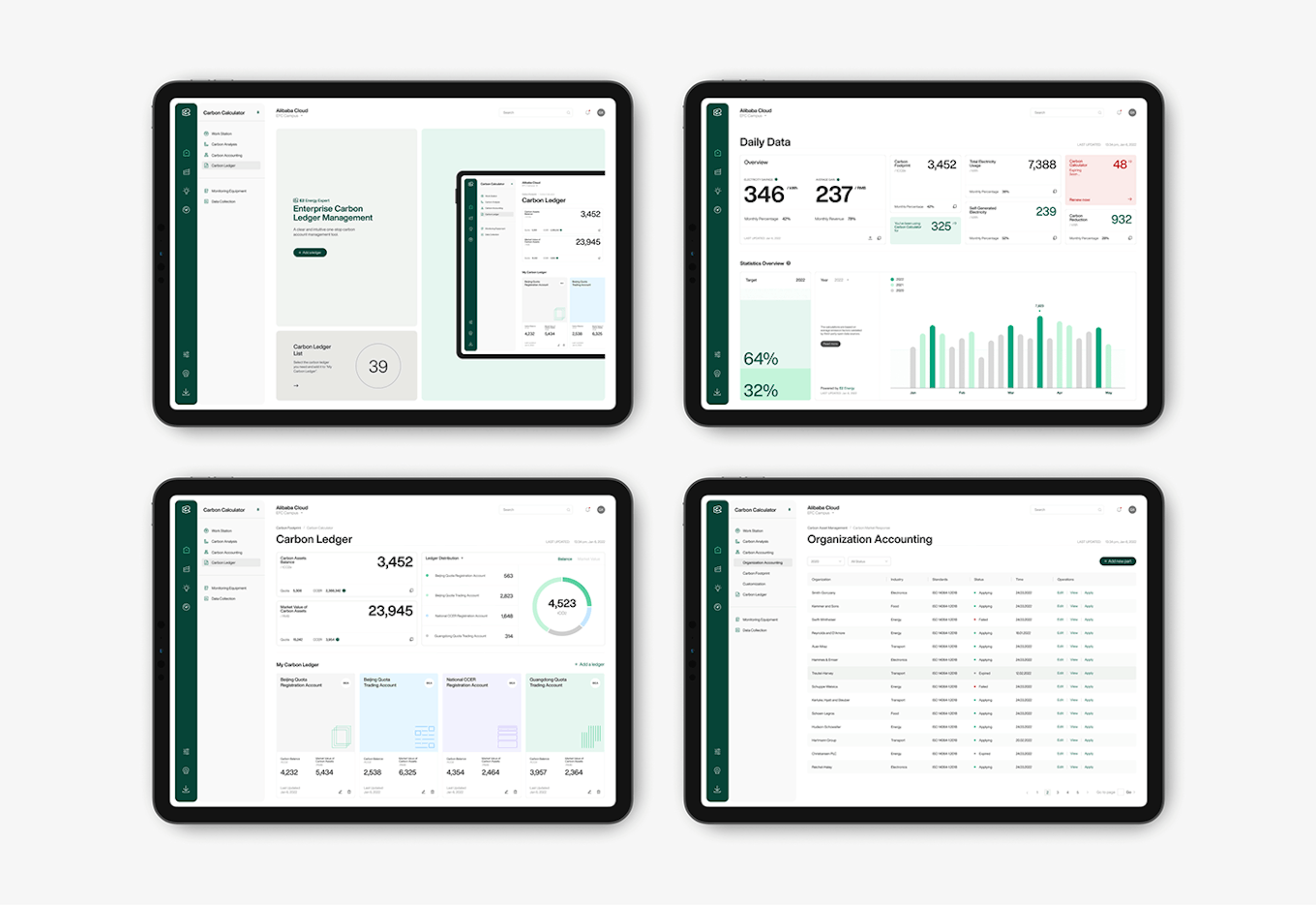For Malaysian firm UEM Edgenta, greenhouse gas emissions tracking has for a long time been a manual process.
The Kuala Lumpur-based asset management and infrastructure company, keen to calculate and report across its Scope 1 to 3 emissions, had been looking to streamline its environment, social and governance (ESG) strategies. It also wanted to simplify its sustainability reporting processes for a compliance exercise that it was undertaking, but found that it lacked the technological capabilities to do so.
Hence, last year, when Alibaba Cloud, the digital technology and intelligence backbone of Alibaba Group, expressed interest to work with more companies to adopt its artificial intelligence (AI) sustainability tools and solutions, UEM Edgenta was one of the firms eager to pursue the partnership. It made a huge leap in transforming its business strategy into a technology-driven one, and among the new solutions it adopted was Energy Expert, a software-as-a-service tool for energy consumption and carbon management.
UEM Edgenta has since integrated the tool developed by Alibaba Cloud, which is capable of helping enterprises obtain real-time sustainability performance statistics and identify emissions sources, into its own cloud-based data platform. In September last year, the firm launched a set of climate targets and announced its commitment to achieve net-zero greenhouse gas emissions by 2050. A key thrust of its decarbonisation strategy is enhancing energy efficiency of its operations.
In China, home to some of the world’s largest technology companies, cloud computing has played a pivotal role in facilitating energy-light digitalisation. Unlike the traditional use of localised hardware and servers for data storage, cloud computing uses web-based infrastructure, eliminating the need to construct sizeable server farms and substantially reducing operational carbon emissions. Industry insiders believe it provides unprecedented opportunities for decarbonisation through the integration of data intelligence and AI technologies.
Increasingly, Chinese cloud providers are also venturing into Southeast Asia to expand their market footprint, selling new tools and solutions targeted at firms working on enhancing their sustainability strategies. According to IDC, which tracks revenue earned by cloud vendors, Southeast Asia is now the fastest-growing cloud computing market globally and is expected to be valued at US$40.32 billion by 2025.
Alibaba Cloud, for instance, has reported seeing increased demand for its services in Malaysia. In June last year, it announced its plans to work with more Malaysia’s local enterprises across various industries. The country has laid out its energy transition roadmap, and has a target to achieve net-zero greenhouse gas emissions by 2050.
Scalable and adaptable sustainability solution
As the first Internet company from Asia to join the World Business Council for Sustainable Development, Alibaba has also started collaborating with the global CEO-led organisation of more than 200 leading companies and partners to promote a new ‘Scope 3+’ emissions reduction standard that it is pioneering. More widely known as an avoided emissions standard that goes beyond Scope 1 to 3 emissions reduction, it is targeted at incentivising and supporting the creation and deployment of the most effective decarbonisation solutions.
The Hangzhou-based tech group has millions of merchants and over 1 billion consumers on its digital platform’s ecosystem.
The group has ambitions to work with more enterprises across Southeast Asia to accelerate their timelines for achieving emission reduction targets, as well as the region’s net-zero transition goals. The technology company, in its 2021 carbon neutrality action report, described its goal to become an “enabler for sustainable business” by empowering businesses and consumers on its platforms to decarbonise. It has set a Scope 3+ target of reducing 1.5 gigatonnes of emissions across its digital ecosystem by 2035, and has pledged to share its energy-efficient technologies with customers and business partners, so as to drive collective efforts across its value chain.
Energy Expert, Alibaba Cloud’s AI-powered energy optimisation and carbon management platform that enables customers to monitor, analyse, and optimise their carbon emissions and make informed actions to fulfill their sustainability goals, is one tool that the group’s partners can tap on. More than 3,000 organisations now use the platform. According to Alibaba, compared to using traditional tools to measure carbon footprint, organisations doing so via Energy Expert can save about 75 per cent of time used and 90 per cent in terms of cost.

Energy Expert is a software-as-a-service tool created by Alibaba Cloud. Image: Alibaba Cloud Design
A key reason for the heightened demand of Alibaba Cloud’s services is businesses needing to integrate sustainability into their operations. Zhou Wenwen, general manager of Energy Cloud, Alibaba Cloud Intelligence, tells Eco-Business that ESG compliance requirements for public-listed companies (PLCs) in Malaysia like UEM Edgenta are growing to become more complex, and these PLCs form a majority of Alibaba Cloud’s main customer base.
“Digitalisation for these companies also usually means a lot of time and costs are saved,” he said.
Due to rules necessitating the monitoring of indirect emissions in supply chains, some Malaysian firms also have to accede to requests by business partners in their downstream or upstream value chain to provide such data, said Zhou. For now, only a minority of firms that adopt Alibaba’s energy management tool are doing so voluntarily, though Zhou believes that is set to change.
“Our solution is designed to be both scalable and adaptable, ensuring it can be tailored to meet the unique needs of customers across various markets. For example, customers in Malaysia can opt to record their emissions manually or use sensors to monitor their emissions. We can customise the processes to align them to ISO standards or a Malaysia-specific standard,” he explained.
Last year marked the first time Alibaba reported its progress in tracking its Scope 3+ target. It now has a published methodology for doing so, with clarified definitions and measurements. In FY2023, it achieved Scope 3+ emissions reduction of 22.907 million metric tonnes of CO2 equivalent (MtCO2e) through practical carbon abatement. About 409 brands and 1.91 million products participated in Alibaba’s Scope 3+ emissions reduction through a ledger platform and initiatives to promote its low-carbon products. In its latest ESG report, it stated that it has achieved progress in reducing its Scope 3 – or indirect emissions – by 0.40 million MtCO2e.




















